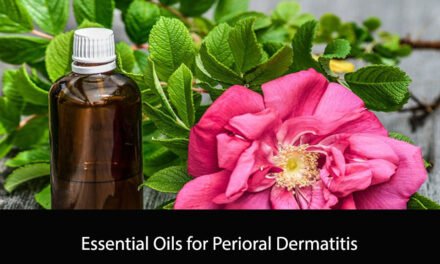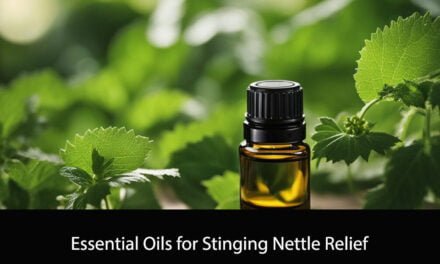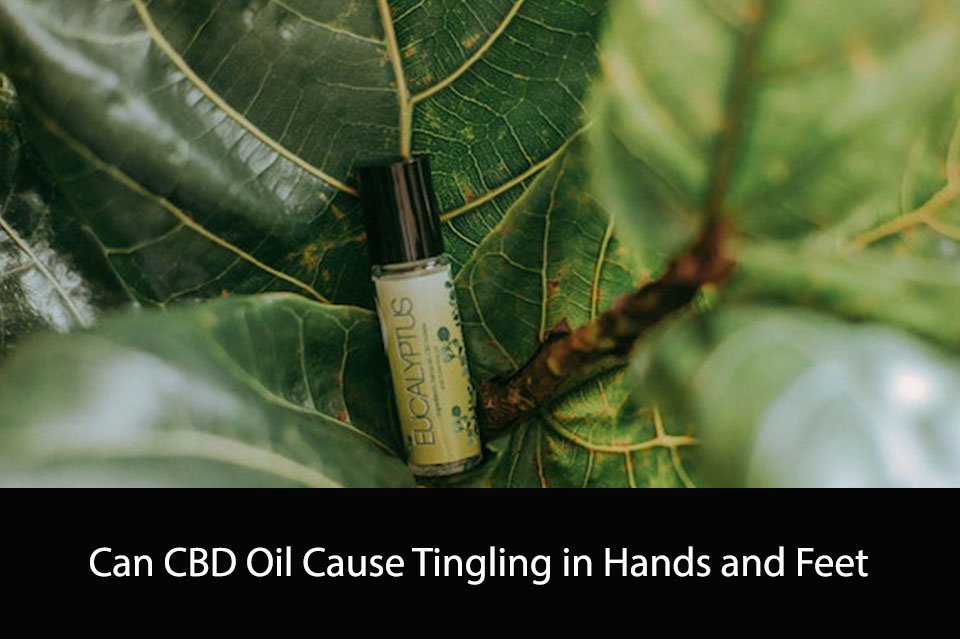Essential oils have been used for centuries for their therapeutic properties. They are extracted from plants and contain concentrated compounds that can be used for a variety of purposes. One popular way to use essential oils is through inhalation. Inhaling essential oils can help to improve mood, reduce stress, and alleviate respiratory issues.

An essential oil inhaler is a small device that allows you to inhale the aroma of essential oils. It is a convenient and portable way to experience the benefits of essential oils throughout the day. Essential oil inhalers are easy to use and can be customized with different oils depending on your needs. They can be used for a variety of purposes, from promoting relaxation to improving focus and concentration. In this article, we will explore the benefits of essential oils for inhalers and how to use them effectively.
Benefits of Essential Oils for Inhalation
Inhaling essential oils is a popular way to experience their therapeutic benefits. Here are some of the benefits of using essential oils for inhalation:
- Relaxation and Stress Relief: Certain essential oils, such as lavender and chamomile, have calming properties that can help to reduce stress and promote relaxation.
- Improved Focus and Concentration: Essential oils like peppermint and rosemary are known for their ability to enhance mental clarity and focus.
- Respiratory Support: Essential oils like eucalyptus and tea tree can help to support respiratory health by opening up the airways and promoting clear breathing.
- Immune System Support: Some essential oils, such as lemon and frankincense, have immune-boosting properties that can help to support overall health and well-being.
- Mood Enhancement: Essential oils like bergamot and ylang-ylang have mood-enhancing properties that can help to uplift the spirits and promote feelings of happiness and well-being.
Overall, using essential oils for inhalation can be a natural and effective way to support your health and well-being. However, it is important to use them safely and according to the instructions provided by a qualified aromatherapist or healthcare professional.
Types of Essential Oils for Inhalers

When it comes to essential oils for inhalers, there are several options to choose from. Each type of oil has its own unique properties and benefits. In this section, we will explore some of the most popular essential oils for inhalers.
Eucalyptus Oil
Eucalyptus oil is a popular choice for inhalers due to its refreshing and invigorating scent. It is known for its ability to help clear the respiratory system and ease breathing. Eucalyptus oil can also help reduce inflammation and relieve pain.
Peppermint Oil
Peppermint oil is another popular choice for inhalers. It has a cooling and refreshing scent that can help open up the airways and improve breathing. Peppermint oil is also known for its ability to help relieve headaches and reduce nausea.
Lavender Oil
Lavender oil is a versatile essential oil that is often used for relaxation and stress relief. It has a calming and soothing scent that can help reduce anxiety and promote relaxation. Lavender oil can also help relieve respiratory issues such as coughs and congestion.
Tea Tree Oil
Tea tree oil is a powerful essential oil that has antibacterial and antiviral properties. It is often used to help fight off respiratory infections and boost the immune system. Tea tree oil can also help reduce inflammation and relieve respiratory symptoms such as coughs and congestion.
Rosemary Oil
Rosemary oil is a stimulating essential oil that can help improve respiratory function. It has a refreshing and invigorating scent that can help open up the airways and improve breathing. Rosemary oil can also help reduce inflammation and relieve pain.
Overall, there are many different types of essential oils for inhalers to choose from. Each type of oil has its own unique benefits and properties, so it’s important to choose the one that is best suited for your needs.
How to Use Essential Oils in Inhalers
Using essential oils in inhalers can be an effective way to experience the benefits of aromatherapy on-the-go. There are several methods of inhalation that can be used with essential oils, including direct inhalation, steam inhalation, and personal inhalers.
Direct Inhalation
Direct inhalation is a simple and effective method of using essential oils in inhalers. To use this method, simply add a few drops of essential oil to a tissue or cotton ball and hold it up to your nose and inhale deeply. This method is great for quick relief of respiratory issues, headaches, and stress.
Steam Inhalation
Steam inhalation is another effective method of using essential oils in inhalers. To use this method, add a few drops of essential oil to a bowl of hot water and inhale the steam deeply. This method is great for respiratory issues and can help to clear congestion and relieve sinus pressure.
Personal Inhalers
Personal inhalers are a convenient and easy way to use essential oils in inhalers. These small inhalers are portable and can be carried with you wherever you go. To use a personal inhaler, simply add a few drops of essential oil to the wick inside the inhaler and inhale deeply. This method is great for stress relief, respiratory issues, and can be used as a natural alternative to over-the-counter inhalers.
In conclusion, using essential oils in inhalers can be a great way to experience the benefits of aromatherapy on-the-go. Whether you prefer direct inhalation, steam inhalation, or personal inhalers, there are several methods to choose from that can help to relieve respiratory issues, stress, and headaches.
Safety and Precautions
Dilution Guidelines
When using essential oils in inhalers, it is important to dilute them properly to avoid irritation or adverse reactions. We recommend using a carrier oil such as coconut or jojoba oil to dilute the essential oil. A general guideline for dilution is to use 3-5 drops of essential oil per 10ml of carrier oil. However, it is important to check the specific dilution guidelines for each essential oil as some oils require higher or lower dilution ratios.
Possible Side Effects
While essential oils can be beneficial when used properly, they can also have potential side effects. Some essential oils may cause skin irritation, allergic reactions, or respiratory issues when inhaled. It is important to do a patch test on the skin before using any new essential oil and to discontinue use if any adverse reactions occur. If you experience any respiratory issues such as coughing, wheezing, or shortness of breath, seek medical attention immediately.
Avoiding Interactions
Certain essential oils may interact with medications or medical conditions. It is important to consult with a healthcare provider before using essential oils if you have any medical conditions or are taking any medications. Some essential oils may also be harmful to pets or children, so it is important to keep them out of reach and to use caution when using essential oils around them.
In conclusion, essential oils can be a beneficial addition to inhalers when used properly. By following dilution guidelines, being aware of possible side effects, and avoiding interactions, we can safely incorporate essential oils into our inhaler routines.
Choosing the Right Essential Oils
When it comes to choosing the right essential oils for your inhaler, it’s important to consider your specific needs and preferences. Here are a few factors to keep in mind:
1. Aromatherapy Benefits
Different essential oils have different aromatherapy benefits, so it’s important to choose oils that align with your goals. For example, lavender oil is known for its calming properties, while peppermint oil is invigorating and can help with mental clarity. Do some research and choose oils that will help you achieve the desired effects.
2. Quality of the Oil
It’s important to choose high-quality essential oils for your inhaler, as lower quality oils may contain impurities or be less effective. Look for oils that are 100% pure and have been tested by a third-party to ensure their quality.
3. Personal Preferences
Everyone has different preferences when it comes to scents, so it’s important to choose oils that you enjoy. Experiment with different oils and combinations to find what works best for you.
4. Safety Considerations
Some essential oils can be irritating or even harmful if used improperly. Make sure to research the safety considerations for any oils you plan to use in your inhaler, and follow proper dilution guidelines.
Overall, choosing the right essential oils for your inhaler is a personal decision that should be based on your specific needs and preferences. By considering the factors above, you can create a customized blend that supports your goals and helps you feel your best.
Maintenance and Care of Inhalers
Proper maintenance and care of inhalers is crucial to ensure their effectiveness and longevity. Here are a few tips to keep your inhalers in good condition:
- Clean your inhaler regularly: We recommend cleaning your inhaler at least once a week to prevent the buildup of residue and bacteria. To clean, remove the mouthpiece and wash it with warm soapy water. Rinse thoroughly and let it air dry before reattaching it to the inhaler.
- Store your inhaler properly: Inhalers should be stored in a cool, dry place away from direct sunlight and heat. Avoid storing them in humid areas like the bathroom, as moisture can damage the medication and the device.
- Replace your inhaler as needed: Inhalers have a limited lifespan, and it’s important to replace them when they expire or run out of medication. Check the expiration date on your inhaler regularly and replace it as needed.
- Keep track of your inhaler usage: It’s important to keep track of how often you use your inhaler, as this can help you determine when it’s time for a replacement. Most inhalers come with a counter that tracks the number of doses, so be sure to check it regularly.
- Avoid sharing your inhaler: Inhalers should never be shared with others, as this can spread germs and bacteria. It’s important to use your own inhaler and keep it clean and properly maintained.
By following these simple tips, you can ensure that your inhaler is always in good condition and ready to use when you need it.
Essential Oil Recipes for Inhalers
We’ve compiled some essential oil recipes that are perfect for use in inhalers. These recipes can help provide relief for a variety of ailments, from headaches to allergies.
Headache Relief
To help alleviate headaches, try this recipe:
- 5 drops peppermint essential oil
- 3 drops lavender essential oil
- 2 drops eucalyptus essential oil
Combine the essential oils in a small glass bowl and mix well. Add the mixture to your inhaler and inhale deeply as needed.
Allergy Relief
If you suffer from allergies, this recipe can help:
- 4 drops lemon essential oil
- 4 drops lavender essential oil
- 2 drops peppermint essential oil
Mix the essential oils together in a glass bowl and add them to your inhaler. Inhale deeply as needed to help reduce allergy symptoms.
Respiratory Support
For respiratory support, try this recipe:
- 4 drops eucalyptus essential oil
- 4 drops peppermint essential oil
- 2 drops rosemary essential oil
Combine the essential oils in a glass bowl and add them to your inhaler. Inhale deeply as needed to help support respiratory health.
Remember to always use high-quality essential oils and consult with a healthcare professional before using essential oils for any health concerns.
Frequently Asked Questions
What are the best essential oils to use for anxiety relief in an inhaler?
When it comes to anxiety relief, there are several essential oils that have calming properties. Some of the best essential oils to use in an inhaler for anxiety relief include lavender, bergamot, chamomile, and frankincense.
How can I create my own essential oil inhaler recipe?
Creating your own essential oil inhaler recipe is easy and fun. To make your own recipe, simply choose your favorite essential oils and mix them together in a small glass bottle. Then, add a few drops of the mixture to your inhaler wick and enjoy the benefits of your custom blend.
Are there specific essential oils recommended for improving lung function?
Yes, there are several essential oils that are recommended for improving lung function. Some of the best essential oils for this purpose include eucalyptus, peppermint, tea tree, and rosemary.
What is the safest way to use essential oils in an oral inhaler?
The safest way to use essential oils in an oral inhaler is to dilute them with a carrier oil before adding them to the inhaler wick. This will help to prevent any irritation or adverse reactions.
Which essential oils can help with quitting smoking when used in an inhaler?
Several essential oils can help with quitting smoking when used in an inhaler. Some of the best essential oils for this purpose include black pepper, ginger, grapefruit, and lemon.
How can I mix essential oils for optimal breathing support?
To mix essential oils for optimal breathing support, start by choosing a few oils that have respiratory benefits, such as eucalyptus, peppermint, and tea tree. Then, mix them together in a small glass bottle and add a few drops to your inhaler wick.





